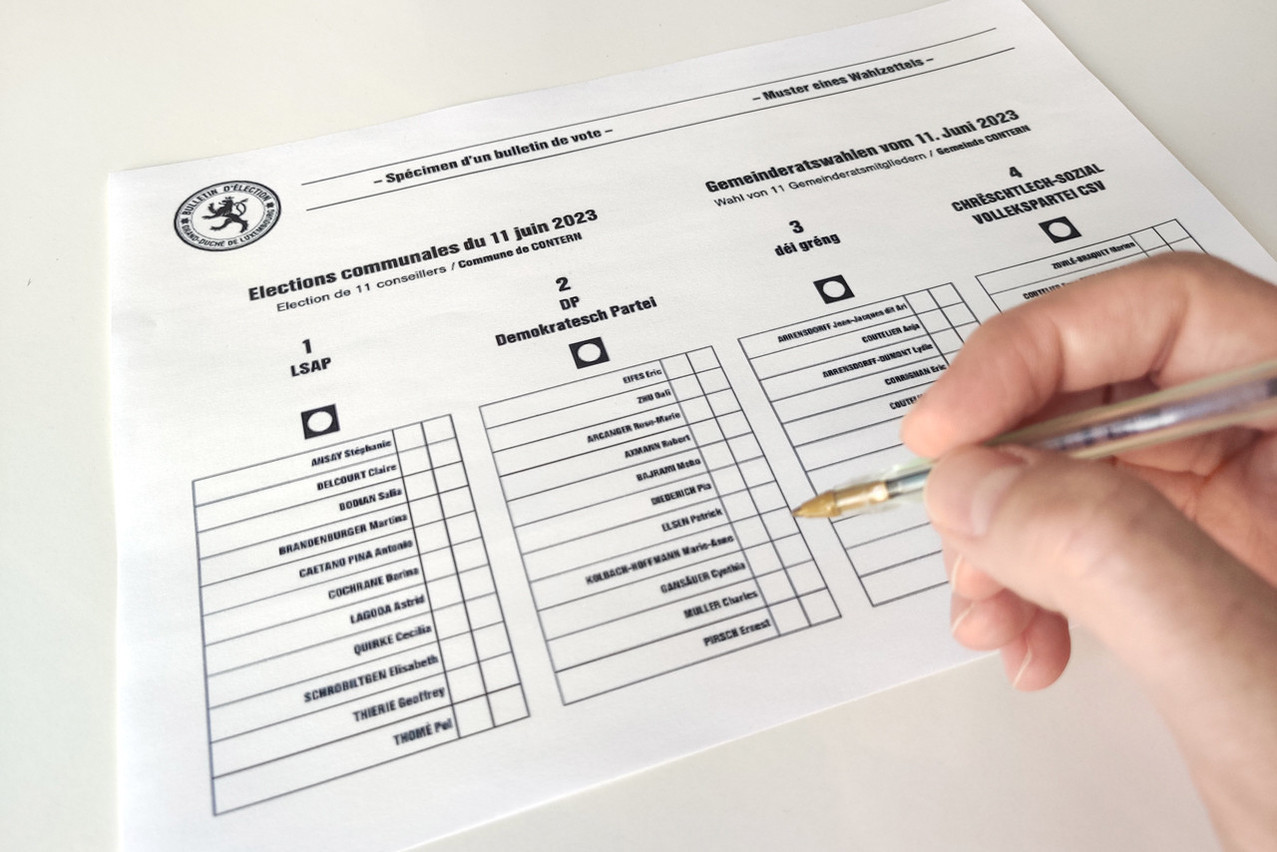There are two separate election systems in Luxembourg, depending on the size of the commune. For municipalities with fewer than 3,000 residents, voters select candidates who run individually, the so-called majority voting system.
In this case, voters have seven or nine votes, depending on the size of the commune, which they can distribute among candidates, giving up to one vote per person. Voters can choose to give fewer than their allocated number of votes, but not more.
In larger communes, candidates run as part of a party list or group--the proportional voting system. Voters can either select a full list, giving one vote per candidate, or distribute their votes to individual candidates, giving up to two votes per person.
Each voter gets a number of votes equivalent to the number of seats on their commune’s council. In Luxembourg City, that means voters can hand out 27 votes. For other communes, the number ranges from 11 to 19, depending on the size of the municipality.
Voting for both a party list and individual candidates invalidates the ballot. As does exceeding the number of allocated votes, although voters can choose to give fewer votes, for example only giving two votes to their top choice for mayor.
The proportional system allows voters not only to choose candidates across party lines but also provides room for some strategic voting. For example, instead of ticking the box for a list, giving every person running for that party one vote, voters can give two votes each to the top of the list until they run out of votes.
In terms of the success of the party in the election, the outcome is the same. But it gives candidates at the top of the list an extra boost to make it to the town council or the mayor’s office.
Voters wanting to kick a party out of power can look at the current distribution of seats on their town council and consider whether the desired result is best achieved by spreading votes across different parties or giving as many as possible to a strong opposition group.
This year, 56 communes are voting under the proportional system and 46 under the majority system. In six communes, there won’t be any elections as there aren’t enough candidates to hold a vote: Bourscheid, Nommern, Stadtbredimus, Vichten, Weiler-la-Tour et Winseler.
Practice ballot
A few days ahead of the election on 11 June, all voters receive a practice ballot to familiarise themselves with the order of parties and/or candidates on the list. However, this ballot cannot be submitted at the polling booth and will not be considered valid if placed in the ballot box instead of the official papers received at the voting station.
Writing on the ballot or signing it also invalidates the document. Ballot papers can be filled out in pen or pencil, although communes provide all the stationery needed at the polling booth.
The practice ballot sent ahead of election day also includes instructions on which polling booth to visit and its opening hours. Voters must bring a valid identity document, such as an ID card, passport or residence permit. Polling stations close at 2pm across the country.
Luxembourg nationals and foreigners who registered to vote must attend--or have arranged a postal vote ahead of time. Not voting is a fineable offence although fines have not been levied in recent years.
3,847 candidates to choose from
One in five eligible foreigners registered to vote in the 11 June election, with 50,084 out of 257,085 non-nationals signing up. Unlike Luxembourg nationals, foreigners aren’t automatically added to the voter lists.
In Luxembourg City, 12,626 non-nationals out of 68,504 eligible voters will be heading to the polls, compared to 32,090 Luxembourg nationals. More than 70% of the city’s population don’t hold a Luxembourg passport.
There are 3,847 candidates in total, running for 1,121 posts. Less than 10% of candidates (379) are foreigners. However, people with dual nationality running for office are counted on the Luxembourg side. More than a third of candidates (38.55%) are women.
